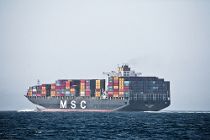Sailing turns green
Carbon-neutral, wind powered ships will be used by businesses seeking green alternatives to fossil fuel-powered vessels.

Carbon-neutral, wind powered ships will be used by businesses seeking green alternatives to fossil fuel-powered vessels.
Fitted with high-tech features such as biofuel powered engines, the "sail ships", as they are known, are designed to cut carbon emissions. According to David Surplus, Managing Director of B9 Energy, Britain's largest wind farm operator, the vessels, are the future of shipping.
"By most people's estimates we have reached peak oil…sooner or later the fuel will run out and there will simply be no alternative [to sail ships]," Surplus said in an interview with CNN yesterday (13th December 2010).
B9 Energy claim its sail ships will be the first commercially produced merchant ship to harness alternative energy. The ships, planned to be in production by 2012, will feature automated sails that self-adjust and respond to minute changes in wind speed and direction. They will also use skysail technology - a kite-styled system of towing used on some cargo ships to improve fuel efficiency.
Surplus said that the B9 vessel will be equipped to carry 9,000 tons of cargo, a small quantity when compared to the 100,000 tons larger trade ships carry. However, the B9 will operate mainly in the North Sea and Baltic Sea, where winds are strong and when the conditions are less windy the biofuel-powered engine will be operated.
"There are currently about 1,500 similarly sized fossil fuel-powered ships working along these routes and our dream is to replace all of them," Surplus said. The ships are not currently designed to replace the long-haul vessels that operate throughout the world, yet Surplus is confident that one day it will happen.
"A lot of people don't understand what renewable energy has achieved onshore. If you simply transfer those economic models across to shipping, it completely transforms the economic situation," said Surplus.
However, Jeremy Harrison, Communications Director at the Chamber of Shipping, is doubtful that sail ships will replace the larger cargo vessels. "I would love to see sail boats replace the current system," said Harrison. "But I can't see how it will be economical, even as fuel prices rise."
He added: "Unless you build a sail-powered boat as big as the ships that are out there today, it will be very difficult to achieve the economies of scale to make it competitive," Harrison said.
Harrison believes that the large cargo ships can offset higher fuel costs by taking advantage of advances in fuel efficiency. "Big shipping companies have already made huge savings just by 'slow steaming' – reducing their speeds to save fuel consumption," he said.
Earlier this year Maesrk, the world's largest container shipping firm, undertook a strategy of sailing its ships at 12 knots – known as super-slow steaming.
As a result, Maersk has reduced its fuel consumption and greenhouse gas emissions by 30 per cent. Moving at a slower rate reduces the amount of drag and friction as ships cut through the water, which, in turn, reduces the ship's emissions.
David Bonilla, Senior Research Fellow at the Transport Studies Unit at Oxford University said that reducing speed will not curb the shipping sector's immense emissions growth on its own. More efficient vessels are needed as well as a change in trade patterns, such as shortening the distance between production and consumption, he indicated to the New York Times in February 2010.
Roughly 87 per cent of international trade is carried out by the shipping industry, according to figures from the International Maritime Organisation. With the majority of world trade travelling by sea, the shipping industry is responsible for around 4 per cent of global carbon emissions, according to the High Level Advisory Group on Climate Change Financing in a November 2010 report.
At the World Climate Summit in Cancun on 4th-5th December, Sir Richard Branson launched ShippingEfficiency.org, a universal energy index for the shipping industry. The program will use a public ranking system to motivate the industry to reduce its carbon intensity.
Author: Leroy Robinson | Climate Action
Image: mikebaird | Flickr






